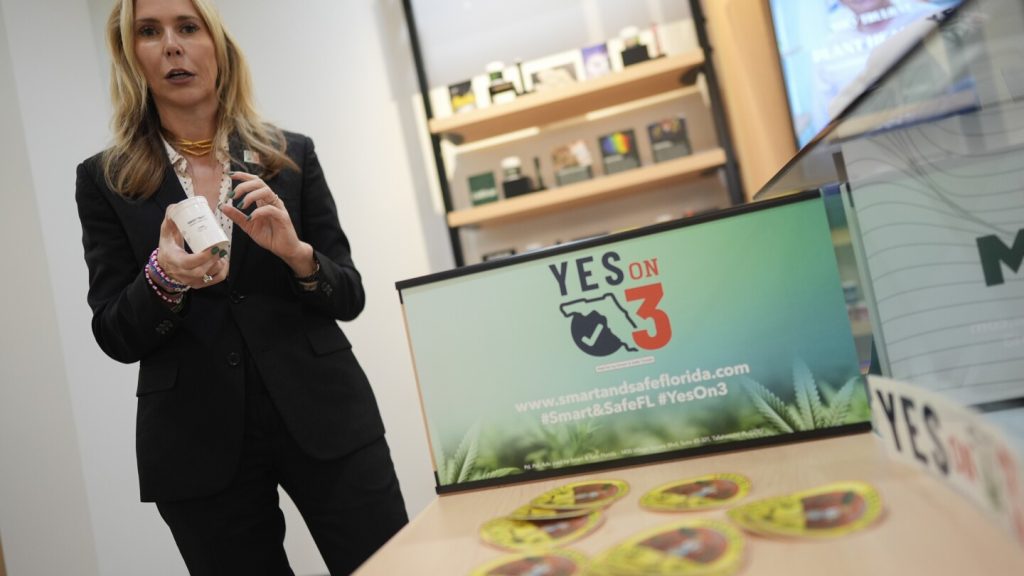The movement to legalize recreational marijuana faced setbacks in all three states where it was on the ballot this year, prompting proponents to consider different tactics in state legislatures and at the federal level. Despite the rapid increase in the number of states legalizing marijuana use over the past 12 years, initiatives in Florida, North Dakota, and South Dakota failed to pass, as they required a supermajority or faced legal challenges. This has raised concerns about the difficulty of enacting legalization in the remaining 26 states, many of which do not allow citizen ballot initiatives.
While voters did approve medical marijuana in Nebraska, becoming the 39th state to do so, the struggle for recreational marijuana legalization persists. Despite support for national legalization, as indicated in a survey of over 120,000 U.S. voters, ballot measures in some states still faced opposition. The federal government has shown signs of potentially reclassifying marijuana as a less dangerous drug, with President-elect Donald Trump signaling support for the change.
In Florida, the proposed legalization of recreational marijuana had majority support but fell short of the 60% supermajority required for constitutional amendments in the state. The campaign was costly, with supporters raising $153 million, mostly from Florida’s largest medical marijuana operator. Opposition was led by Republican Gov. Ron DeSantis, who raised concerns about marijuana through state resources. The well-funded Florida campaign contrasted sharply with the less-funded efforts in North and South Dakota, where initiatives were unsuccessful.
With the challenging landscape for marijuana legalization, advocates are considering alternate strategies, such as engaging state legislatures directly to pass legalization measures. While efforts in North and South Dakota have faced repeated failures, supporters remain resilient and committed to their cause. In states like New Hampshire, where bills to legalize recreational marijuana failed to make progress, advocates are focusing on social justice and equity arguments, highlighting the disproportionate enforcement of drug laws on minorities.
Moving forward, advocates may need to shift their tactics when dealing with Republican-led states, emphasizing potential cost savings and law enforcement benefits of marijuana legalization. As the debate on recreational marijuana continues, different approaches will be explored to gain support in various states across the country. The conversation around marijuana legalization is ongoing, with advocates and opponents continuing to make their case in different political environments.


